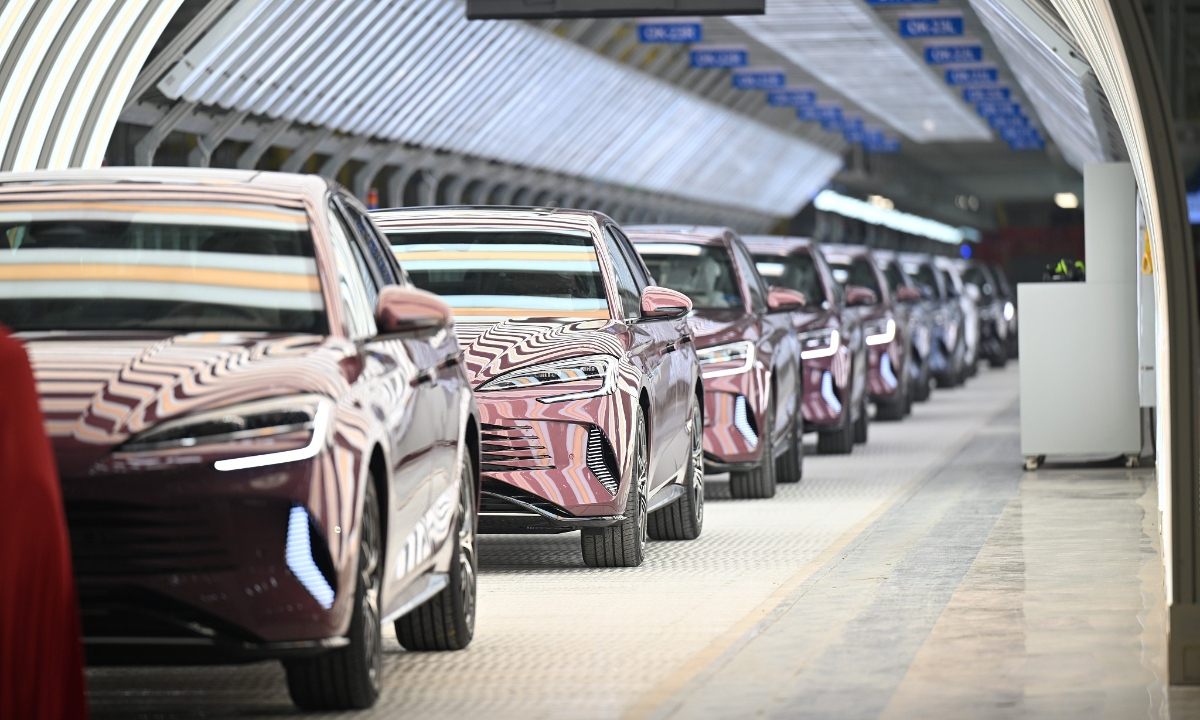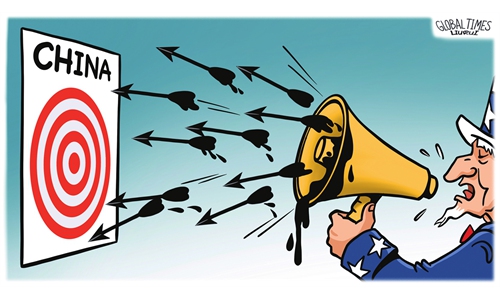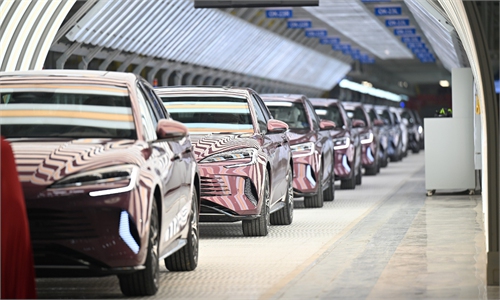EU urged to adopt open, cooperative approach amid dialogue, as bloc reportedly plans Oct 4 vote on Chinese EV tariffs
Bloc reportedly plans vote on tariffs on Chinese EVs on October 4

EV Photo:VCG
The EU's reported delay of the vote on imposing tariffs on imported electric vehicles (EVs) from China showed the divergent attitudes of EU member states while the two sides aim to resolve the trade disputes through consultations, Chinese experts said on Sunday, urging the EU to adopt an open and cooperative approach as maintaining a healthy competitive trade environment with China would be beneficial to both sides.
The EU plans to vote on October 4 on whether to impose tariffs as high as 45 percent on imported EVs from China, which has been slightly delayed amid last-minute negotiations between the two sides to try to find a resolution that would avoid the new levies, Bloomberg reported on Saturday. The member states have received a draft of the regulation for the proposed measures, and the new date could still change, it said.
The initial date for the vote was reportedly planned for September 25, according to media reports.
The Bloomberg report said that the vote would pave the way for new duties as high as about 35 percent to kick in from November for five years unless a qualified majority - 15 member states representing 65 percent of the bloc's population - opposes the move. The new tariffs would be on top of the existing 10 percent rate, it said.
The delay reflects the divergent attitudes of EU member states toward protectionist trade measures, as these tendencies could harm the economic interests of many EU countries and the open and cooperative trade relations established with China over the years, Cui Hongjian, a professor at the Academy of Regional and Global Governance with Beijing Foreign Studies University, told the Global Times on Sunday.
The change also came amid the consultations conducted between China and the EU to promote cooperation and dialogue, said Yang Chengyu, an associate research fellow at the Institute of European Studies of the Chinese Academy of Social Sciences.
Currently, technical teams from both sides are actively discussing a flexible price commitment solution, following the direction set during recent consultations between Chinese Minister of Commerce Wang Wentao and European Commission Executive Vice President and Trade Commissioner Valdis Dombrovskis on the EU's anti-subsidy case involving Chinese EVs. They are striving to reach a consensus on a solution framework before the final ruling, said He Yongqian, spokesperson of the Chinese Ministry of Commerce at a press conference on Thursday.
He Yongqian noted that China has the "utmost sincerity" to appropriately resolve disputes through dialogue and consultations, while describing the talks between Wang and Dombrovskis as "comprehensive, in-depth and constructive."
If the EU insists on unilateralism, the practices could result in a lose-lose situation and harm the EU's EV sector and relevant green industries, while also affecting the development of the bloc's internal market and consumer interests, according to Cui, noting that maintaining a healthy competitive trade environment with China would be beneficial to both sides.
Yang told the Global Times on Sunday that the tariff imposition might affect the export of certain Chinese products, but it would hinder the EU's green transformation and undermine the mutually beneficial China-EU economic and trade exchanges.
He Yongqian noted that China is fully determined to safeguard the legitimate interests of Chinese companies.



